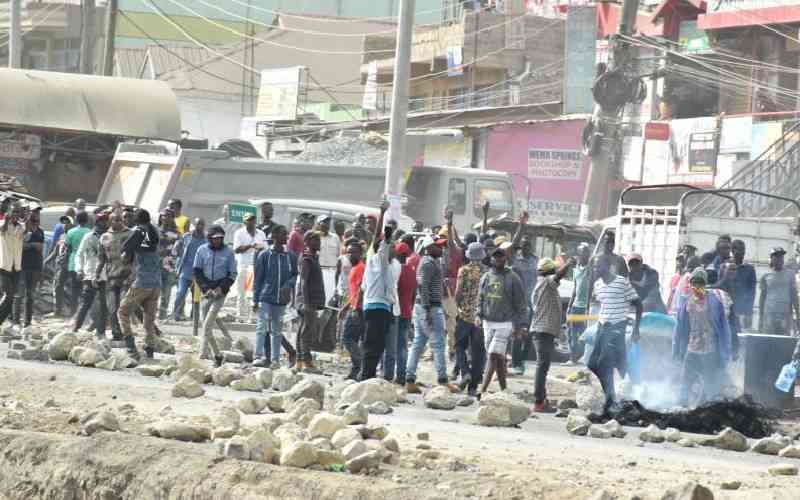Africa (Commonwealth Union) _ Kenya finds itself on edge as it braces for yet another day of opposition protests, prompting a heightened sense of tension in the country. The government has issued a stern warning, vowing to respond firmly to any acts of excess during the demonstrations, following previous instances of violent clashes and fatalities. Led by veteran politician Raila Odinga, the Azimio coalition has called for three consecutive days of protests to voice their grievances against President William Ruto, accusing him of exacerbating the rising cost of living in Kenya.
In a statement released on Tuesday, Azimio called on Kenyans to reclaim their country from what they perceive as an encroaching dictatorship. On the other hand, the government views these demonstrations as a direct threat to national security, heightening concerns and prompting precautionary measures. As a result, public schools in major cities such as Nairobi, Mombasa, and Kisumu have been instructed to remain closed, streets have emptied, and security forces have been deployed in strategic locations throughout Nairobi.
This marks the third round of protests since early July, with the previous demonstrations being banned by the authorities and marred by violent incidents, including looting and clashes between protesters and the police. Tragically, at least nine people lost their lives, and over 300 individuals were arrested. The police’s response to the protests, involving the use of tear gas and live ammunition, received strong criticism from various quarters.
In an effort to prevent a repetition of the violence, Interior Minister Kithure Kindiki assured the public that all available resources have been deployed to maintain order and ensure a peaceful outcome. Internationally, thirteen Western countries, including the United States and the United Kingdom, have expressed their concern over the high levels of violence witnessed during the recent protests. They have urged all parties involved to seek peaceful avenues for resolving their differences.
President Ruto, elected in August 2022 on a platform of revitalizing the economy and supporting marginalized communities, recently enacted a finance bill introducing new taxes, despite opposition backlash and public discontent. Kenya, being a key economic player in East Africa, is grappling with high inflation and a significant debt burden, much of which was accumulated during the presidency of Uhuru Kenyatta, with whom William Ruto served as Vice President.
As the nation remains divided, the outcomes of these protests and the government’s response will play a crucial role in shaping Kenya’s political landscape and determining the path forward for its economy and social stability.








